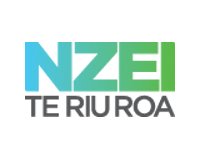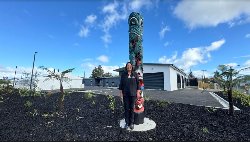Are Our Major Cities Ready For Dementia?
Alzheimers NZ has welcomed a new global report that rates major cities on their readiness to respond to the rapidly growing incidence of dementia.
Of the 30 cities analysed in the report, Auckland ranked 18. Top performing cities were London and Glasgow.
“On the one hand it’s a wake-up call for New Zealand,” said Alzheimers NZ chief executive Catherine Hall, “showing just how far we still have to go to better support New Zealanders living with dementia.
“But on the other hand, we have known for many years that, all over the country, support services for the fast-growing dementia community are woefully inadequate and under-funded.”
The 2020 Dementia Innovation Readiness Index was prepared by the Global Coalition on Aging (GCOA) and Alzheimer’s Disease International (ADI), in partnership with Singapore’s Lien Foundation.
It measured cities’ readiness to respond to the growing global dementia challenge based on five domains - strategy and commitment, early detection and diagnosis, access to care, community support, and business environment.
The report noted top performing cities tend to be in countries that already have a national dementia action plan in place.
Ms Hall said New Zealand does not yet have such a plan, although the dementia sector here recently drafted and presented one to government. All the major political parties have indicated they support the plan in principle and Labour has included reference to it in the election 2020 health policy.
The report also suggests cities have a vital role to play supporting the national dementia plan. This includes helping to ensure adequate funding for the country’s dementia sector which will need to help deliver any dementia action plan.
“The number of New Zealanders affected by dementia is expected to nearly triple in coming years making it vitally important that our major cities are prepared. Currently they aren’t.”
Critical to that preparation is having good data about the size and scale of the dementia challenge facing a country. Cities need to know what they are dealing with.
But Ms Hall says New Zealand doesn’t have prevalence data – other than anecdotal evidence and data extrapolated from other countries, there’s no hard research here to really identify how serious the dementia challenge is, and how fast it’s growing.
“But we know from global research we are going to have a major problem with dementia as our population ages. It’s probably the most serious health care issue New Zealand will face after Covid-19.”
Research also indicates that initiatives aimed at making cities and communities more ‘dementia friendly’ are a key part of providing effective support to people affected by the condition.
Alzheimers NZ operates two such initiatives – its online Dementia Friends programme aimed at encouraging individuals to learn more about dementia – over 9,000 New Zealanders have become Dementia Friends in the last two years - and the comprehensive Dementia Friendly Recognition Programme that works with businesses and organisations to make what they do, and how they operate, as supportive of people with dementia as possible.
Westpac has officially been accredited by Alzheimers NZ as one of several organisations that have already completed the Dementia Friendly Recognition Programme.


 NZEI: Ministry Of Education Cuts Will Disproportionately Affect Pasifika
NZEI: Ministry Of Education Cuts Will Disproportionately Affect Pasifika Day One Hapai te Haeata: Call To Action For Young Filmmakers Against The Backdrop Of Funding Cuts
Day One Hapai te Haeata: Call To Action For Young Filmmakers Against The Backdrop Of Funding Cuts Toyota New Zealand: Three Races For Top Three To Decide TR86 Title
Toyota New Zealand: Three Races For Top Three To Decide TR86 Title Wellington City Council: Wellington Is All Action Stations For The Faultline Ultra Festival
Wellington City Council: Wellington Is All Action Stations For The Faultline Ultra Festival Melanie Allison: Local Playwright Casts A Spell Over Hamilton
Melanie Allison: Local Playwright Casts A Spell Over Hamilton Te Kohao Health: New $12M Wellness & Diagnostic Centre Opens In Hamilton ‘Disrupting The Historic Continuum’ For Māori
Te Kohao Health: New $12M Wellness & Diagnostic Centre Opens In Hamilton ‘Disrupting The Historic Continuum’ For Māori